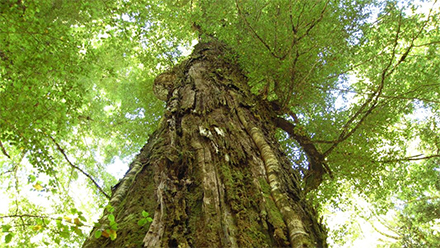Three New Zealand University of Waikato-led projects will unearth new knowledge of our natural environment after receiving a total of NZ$1.9 million in Marsden funding. The studies are among 13 new University of Waikato-led research programs supported by the Marsden Fund this year. Source: Timberbiz
One of these three projects is reconciling New Zealand beech trees with their estranged cousins.
The southern beech trees (Nothofagus) that dominate large areas of New Zealand’s native forests have close relatives in South America and Australia.
A Kiwi traveller who knows their trees will probably have no difficulty recognising the Chilean or Tasmanian relatives of these beech trees but might be surprised by the different ways in which beeches interact with other tree species across time and space in those countries.
Ecologists working in these three regions have come to different conclusions about the conditions that determine where southern beech trees grow best.
Associate Professor Chris Lusk and his colleagues in New Zealand, Chile and Australia will test a new explanation for the divergent behaviour of southern beeches in these regions.
Beech trees in all three countries share a special type of mycorrhiza (plant-fungus partnership) that distinguishes them from most other tree species in the temperate rainforests of the southern hemisphere.
“The fungi involved may be able to ‘hack’ the nitrogen cycle, giving beeches a nutritional advantage in some situations,” Dr Lusk said. However, chemical differences between the soils of New Zealand, Chile and Tasmania affect this type of mycorrhiza, determining whether beeches win or lose in competition with other tree species.
“By looking at the effects of climate and soils on this special relationship between beech trees and fungi, our study will reveal previously undocumented influences on forest development hidden belowground,” Dr Lusk said.
All three projects will commence in 2021.






